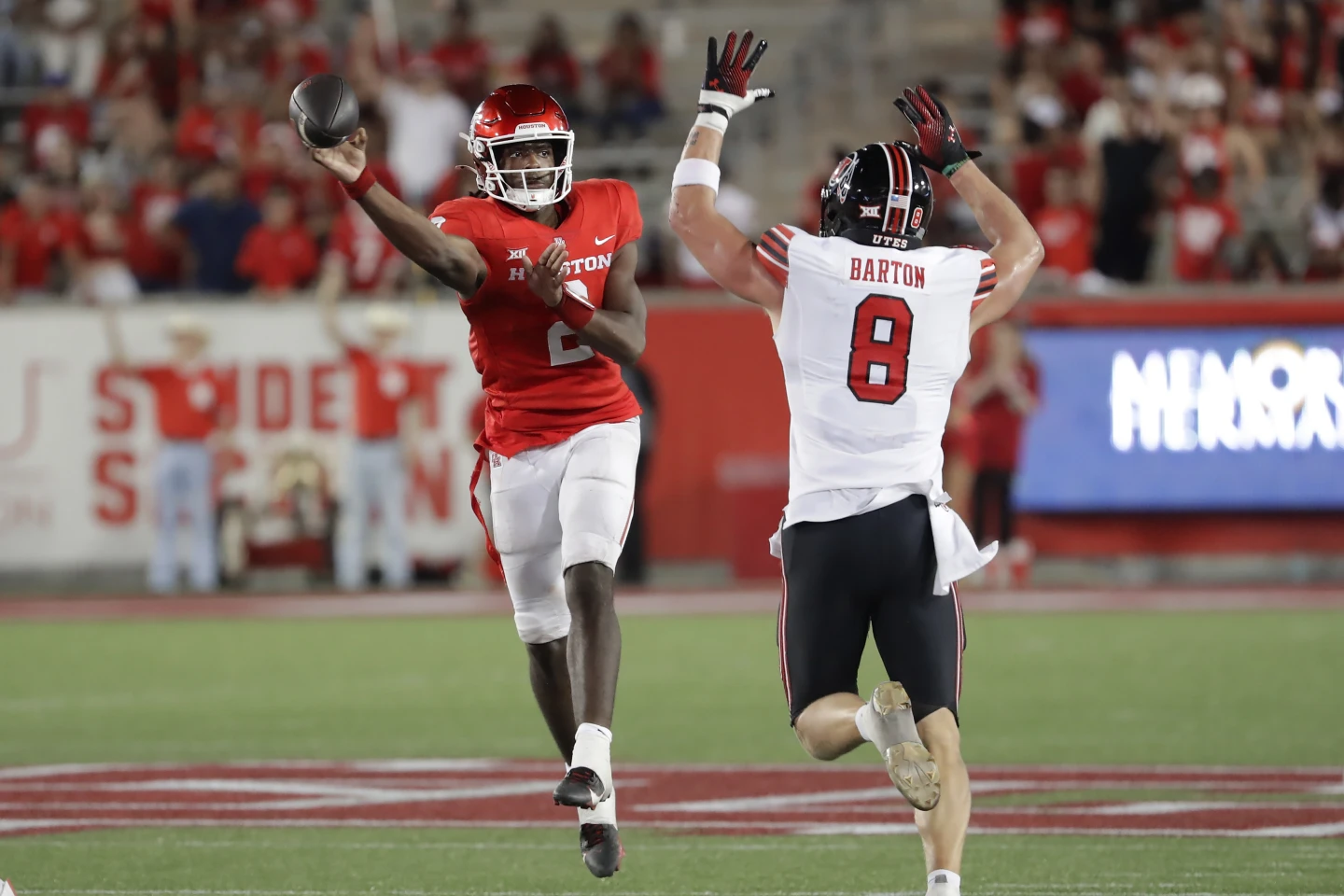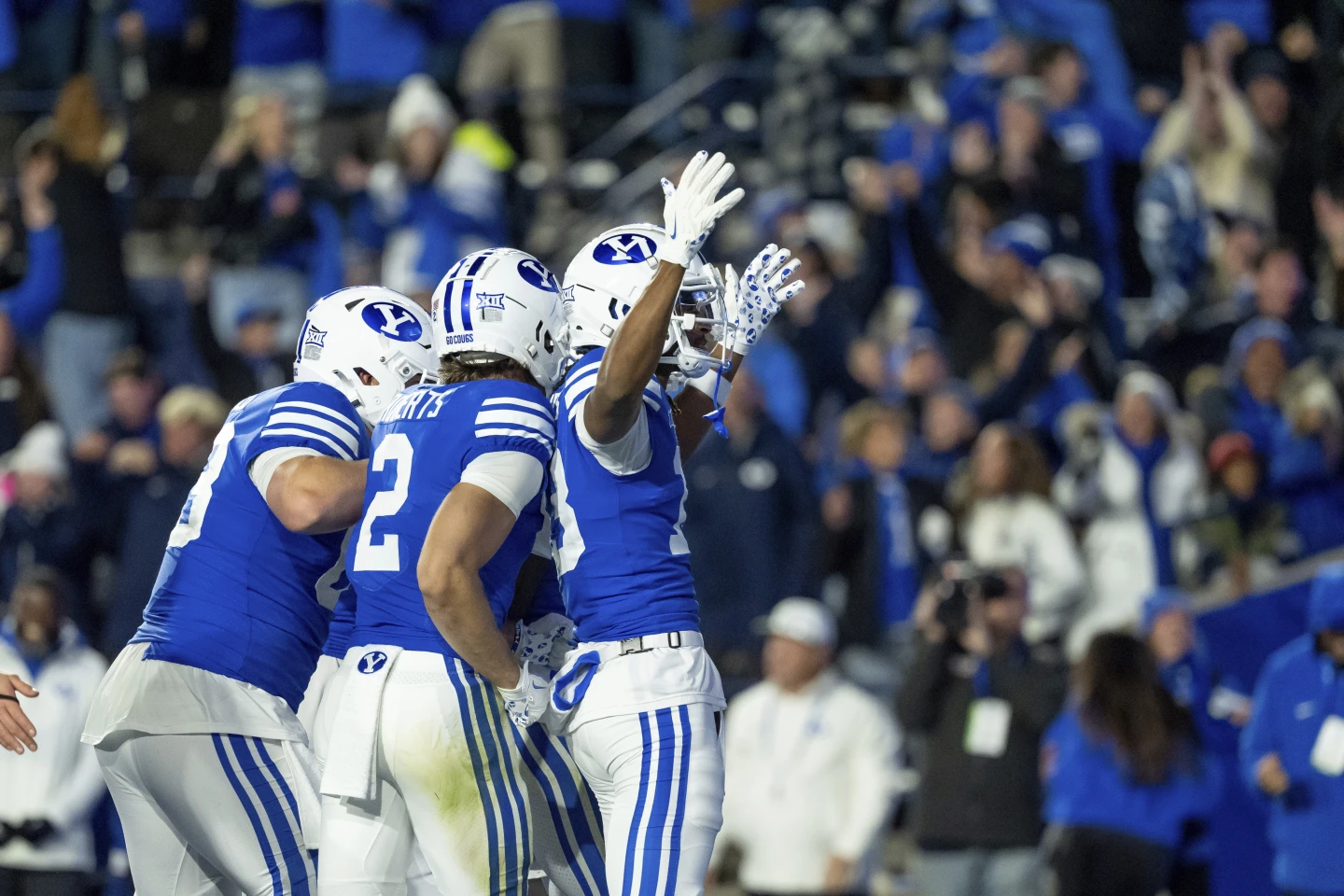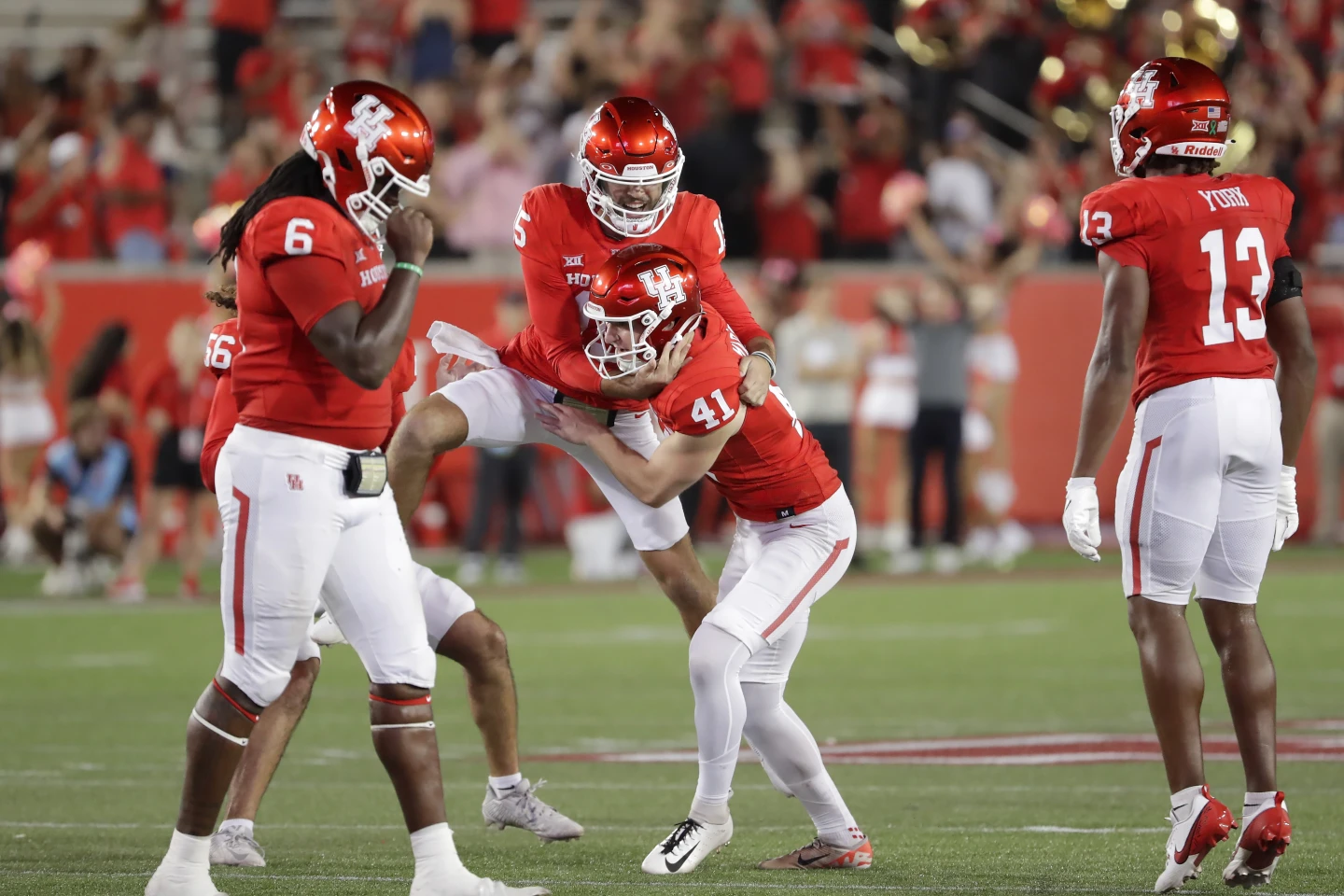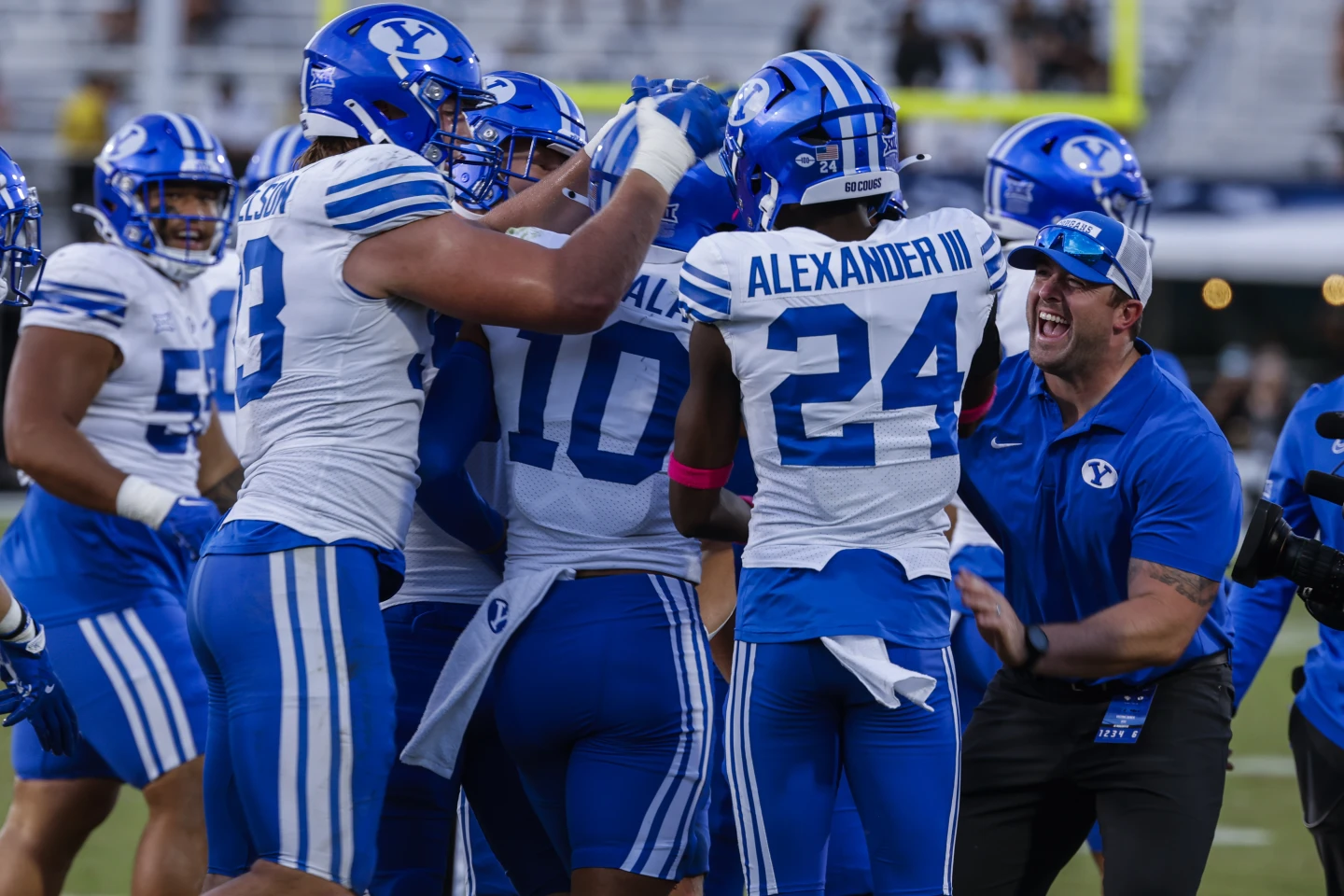Utah’s move from the Pac-12 to the Big 12 has brought about a reunion with BYU after 13 years apart. It has also reignited one of the most intense rivalries in college sports, which spans across several sports.
The Big 12 quickly made the Holy War one of the four protected football rivalries in the league. This means BYU and Utah will face each other every year as long as both schools remain members of the Big 12. The first meeting since the reunion will take place on Saturday when the No. 9 Cougars visit the Utes at Rice-Eccles Stadium.
This rivalry isn’t just limited to football; it also extends to other sports like basketball and volleyball, where the teams will meet twice during the regular season.
Players and coaches from both teams are excited that these games now have more meaning than just bragging rights.
“It’s a fun game to be part of and I’m glad it’s back and want our guys to enjoy every second of it,” BYU coach Kalani Sitake said.

Religion plays a role in the rivalry between Utah and BYU. There’s a sense of church versus state, as BYU is owned by the Church of Jesus Christ of Latter-Day Saints, while Utah is a public university.
However, the rivalry is also fueled by success on the field and court. Both programs have a history of winning conference championships at the expense of the other.
For example, big wins over BYU helped Utah achieve several successful seasons, including their BCS-busting runs. BYU’s rise to No. 1 in the rankings and their national championship in 1984 was boosted by a win over Utah in Salt Lake City.
Chris Burgess, who was part of the Utah team that shared the Mountain West Conference men’s basketball title in 2001, remembers how BYU also claimed a share of the title that year after winning their first regular-season game against Utah in six years.
“You’re trying not to make the game bigger than it is, but it was just hard,” said Burgess, who also coached at Utah and is now in his second stint as an assistant coach at BYU. “You know everybody on that side and you’re close with guys on that side and you want to win it.”
For players and coaches who grew up in Utah, it feels like the rivalry between Utah and BYU has returned to its roots, especially with the games now having an impact on conference championships again.

“That rivalry from the time I entered this world was just ingrained in me,” said Kennady McQueen, a senior guard on Utah’s women’s basketball team. “I would just say it’s a huge part of the state of Utah. There’s extra juice for each team. Everything’s a little extra for that game.”
One special thing about the rivalry between Utah and BYU is how connected the coaches are across different sports. This has helped build a sense of mutual respect between the two programs.
Kyle Whittingham, the head coach at Utah, was an all-WAC linebacker for BYU under coach LaVell Edwards before later becoming Utah’s coach. Many of Whittingham’s former assistants are now at BYU.
Coach Kalani Sitake, offensive coordinator Aaron Roderick, and defensive coordinator Jay Hill all worked under Whittingham at Utah at different points in their careers. Hill also played for Whittingham while at Utah.
Sitake considers Whittingham a mentor and a close friend and says his time at Utah helped prepare him to become a head coach at BYU.
“I have a lot of love for that program and a lot of love for the people there,” Sitake said.
Burgess shared similar thoughts, saying his time coaching as an assistant at both BYU and Utah has allowed him to form lasting friendships at both schools and understand the rivalry from both sides.

“Being on both sides has only intensified my love and respect for this rivalry,” Burgess said. “I can truly appreciate what it means for both fanbases.”
Conference realignment caused some disruption in the rivalry between Utah and BYU when Utah left the Mountain West Conference and joined the Pac-12 in 2011.
Utah dropped BYU from its football schedule twice over the last decade to make room for home-and-home series with teams like Michigan and Florida. Also, the game moved from its usual late November spot to September because of Pac-12 scheduling demands.
Even though the teams were in different conferences for a while, the desire to win the rivalry game never went away at either school.
“Going through the program, seeing how everybody took the game, and how serious it actually is around here with the fans and everybody,” said Utah running back Micah Bernard, “you get immersed in it, and I’ve been immersed in it.”
